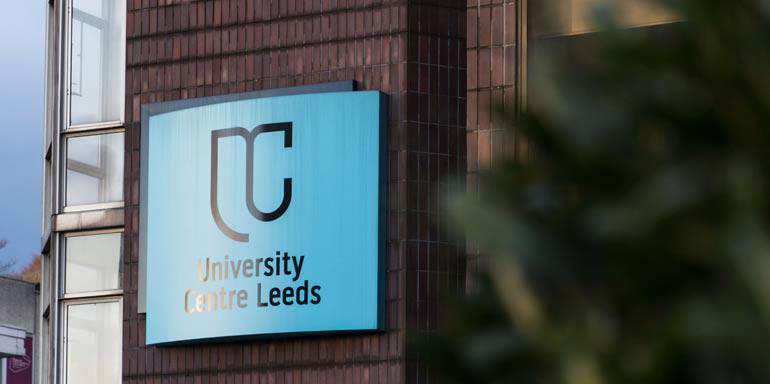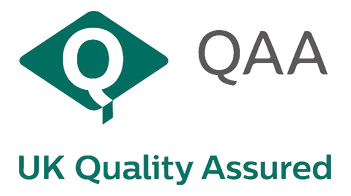
Support for all students
Learning support
You will have access to coaching tutors for study support and help you improve your study skills
For disabled students our learning support team can help with alternative assessment arrangements, applications for Disabled Students’ Allowance (DSA) and more.
More information on DSA support rates for Needs Assessment Centres.
Disabled Students Higher Education Transition Pack
Wellbeing support
You will have access to mental health support, professional counselling and advice should you want someone to talk to confidentially.
Financial support
Our financial guidance includes help with Student Finance applications, access to extra funding and bursaries, a student hardship fund to help you in times of need and access to personalised advice on budgeting.
Careers support
Our progression and careers support can provide you with face-to-face advice, skills development, paid work opportunities and placements, and resources to help you build your CV and professional networks.
The University Centre Hub
The University Centre Hub is the home of your online classroom, news, events and study information. It also features useful services from our Student Support Team.
You have access to lots of information on wellbeing, finance, additional learning support available and all the key information you need whilst you study.
You can use The UC Hub to connect with other students, discover opportunities or keep up to date with University Centre news.
We provide advice and support to disabled students, this includes those with physical disabilities, medical conditions, sensory impairments, autistic spectrum conditions and specific learning difficulties like dyslexia. We can also support you to apply for DSA if you need to. Support can include study skills sessions, adapted materials, assistive technology, assistance with mobility and signposting to relevant external support providers.
Disabled Students’ Allowance, or DSA as you will hear it be called, is a grant paid by your funding body that can help to support you during your time studying with us. DSA is not a loan, so you do not have to pay this back. It can pay for services, support and equipment. You can be eligible for this grant if you have a physical disability, learning difficulty, mental health condition or sensory impairment. You can find out more about if you qualify for this through the government website, or the disabled students allowance guide.
We provide a range of services and resources to help you develop the skills you need for academic success. There’s weekly sessions, one-to-one support and resources available via our UC Hub and Student Support Google Classroom. We can also provide advice on reasonable adjustments to teaching, assessments, and exams and referral to other support services.
We have a team of qualified counsellors who can support students if they experience difficulties with their mental health while studying. The support offered includes short term counselling, referral and signposting information, reasonable adjustments and support with applying for DSA (Disabled Students’ Allowance). Students will also be informed of external support and resources available to them in their initial assessment. This includes self-care tips, self-help strategies, external support groups, helplines and online support. Mentor support is also available to students who may need support adjusting to college. If you are struggling at college, we can help you to communicate with tutors about how they can best support you.
We offer a variety of services to improve your employability and prepare you for your desired career path after you study. Access practical tips from getting a part-time job to finding graduate positions, from learning how to craft the perfect CV to connecting with industry and from joining our Student Ambassadors programme to finding volunteering opportunities.
Our support includes:
- One-to-one appointments on CVs, cover letters, personal statements and interview preparation
- Support with searching for a job and proofreading your applications
- Access to key information and resources to equip you with the knowledge to succeed
- Regular workshops to develop your employability skills
There is financial support and advice available to you to ensure you feel prepared financially whilst you study. If you are struggling to understand how student finance works, you need to find out what funding you may be eligible for, or you need help to manage your money, Student Support can help.
We can help you:
- Apply for Student Finance England
- Work out what you are eligible for, and ensure you receive your full entitlements
- Look at possible emergency help if you are in financial difficulty or struggling with cash flow.
- Work out a budget and understand your income and expenditure.
- We can contact Student Finance on your behalf, with your permission.
- We can refer you to other agencies for more in depth help if you have debts etc.
Safeguarding and Reporting
Designated Safeguarding Team
Report safeguarding concerns to [email protected]
You can report your experience to our Safeguarding team here - the information you provide will be dealt with in a sensitive and confidential manner.
- Andrew Ottey – Luminate Education Group designated safeguarding lead
- Graham Achilli-O’Brien – Designated Safeguarding Officer (University Centre Leeds) and (Leeds Conservatoire)
- Dave Tipple – Designated safeguarding officer (University Centre Leeds)
- Amanda Peace – Designated safeguarding officer (University Centre Leeds)
Useful External Contacts
- If you require urgent support, please refer to our Crisis Support document.
- The Samaritans: 116 123 (free 24-hour helpline)
- National Domestic Abuse Helpline: 0808 2000 247 (free 24-hour helpline)
- SARSVL (Support after Rape and Sexual Violence Leeds): free phone 0808 802 3344
- Nightline: 0113 380 1381 (listening service for students 8:00pm – 8:00am)
- Leeds Housing Options: 0113 378 8366 (emergency out-of-hours)
- Adult Social Care Leeds: 0113 222 4401 (0113 378 0644 out-of-hours)
- Children’s Duty Team Leeds: 0113 376 0336 (0113 535 0600 emergencies)
- Police non-emergency: 101
In the event of an emergency, including serious risk to life, always call 999.
Student Support Services | University Centre Leeds
Prevent
Prevent is about safeguarding and supporting those vulnerable to radicalisation. Prevent is 1 of the 4 elements of CONTEST, the Government’s counter-terrorism strategy. It aims to stop people becoming terrorists or supporting terrorism (Let’s Talk About It).
What is radicalisation?
Radicalisation is the action or process of causing someone to adopt radical positions on political or social issues. Left unchecked, radicalisation can lead to people being drawn into terrorism or other dangerous situations.
What is extremism?
Extremism is the holding of extreme political or religious views. There are many different types of extremism and all can be dangerous when acted upon.
You should report a Prevent concern if you have reason to believe that someone is susceptible to radicalisation or is being radicalised or encouraged to support terrorism.
Prevent covers all forms of terrorism and extremism, including right wing terrorism, violent Islamist extremism, and emerging risks.
Please report any Prevent issues to [email protected].
Prevent Leeds is the local service for non-emergency referrals or suspicions of radicalisation.
Hate Crime
Leeds is generally a very safe and welcoming city and is home to a diverse range of people who have differing views. In rare cases, students might encounter hostility or prejudice because of their disability, race, religion or belief, gender identity or sexual orientation. The police, the local council and the conservatoire take reports of this very seriously.
Definitions
What is a Hate Crime?
A hate crime is any criminal offence which is perceived by the victim or any other person, to be motivated by hostility or prejudice based on a person’s disability, race, religion, sexual orientation or gender identity. Examples include:
- Physical attacks, such as physical assault, damage to property, offensive graffiti and arson.
- Threat of attack, such as offensive letters, abusive or obscene telephone calls, groups hanging around to intimidate, and unfounded malicious complaints.
What is a Hate Incident?
A hate incident is any incident (which may or may not constitute a criminal offence), which is perceived by the victim or any other person to be motivated by prejudice or hate towards a person’s disability, race, religion, sexual orientation or gender identity.
Examples include: Verbal abuse, insults or harassment, such as taunting, offensive leaflets and posters, abusive gestures, dumping of rubbish outside homes or through letterboxes, and bullying at school or in the workplace.
Report a Hate Crime or Hate Incident
As a victim or witness to a hate crime or incident, you can report your experiences in a variety of ways. If you’re reporting a crime that’s in progress or if someone is in immediate danger, please call 999. If the crime isn’t an emergency, call 101 or contact your local police station.
If you do not wish to contact the police directly, you can report hate crimes and incidents to Stop Hate UK, which is a charity that provides independent and confidential support to people affected by hate crime. Call their 24 hour helpline on 0800 1381625, or you can report online.
Hate Crime: A Guide for those affected
Stop Hate UK
Free dedicated 24-hour anti-Hate Crime helpline service.
We are committed to maintaining a safe and respectful environment for all members of our community and we take reports of any sort of unacceptable behaviour very seriously.
Reports will be investigated promptly and thoroughly in accordance with our disciplinary policy and procedures. Our goal is to provide a fair and transparent process for all parties involved.
We have put together some frequently asked questions that we hope will explain what to expect:
All parties – the reporting student, the reported student and any witnesses – can have someone sit in the interviews with them for support, but they can’t speak on your behalf. The accompanying person can be, for example, another student, a friend, a parent or other relative. They can also accompany you if you attend a disciplinary hearing, but again they can’t speak on your behalf.
See the Student Charter for more information.
University Centre Leeds (and other higher education institutions) refer to external, expert, guidance and requirements when putting together conduct and disciplinary policies and procedures:
- Pinsent Masons / Universities UK:
- Guidance For Higher Education Institutions – How To Handle Alleged Student Misconduct Which May Also Constitute A Criminal Offence.
- This is quite a long document (23 pages) but very clearly explains how higher education institutions should handle disciplinary cases which could also be a criminal offence.
- The Office of the Independent Adjudicator (OIA) (independent student complaints scheme for England and Wales):
- Office for Students (OfS):

Reporting an Incident
If you experience inappropriate behaviour of any kind from a student or staff member, you can report this to us through our incident reporting form. A member of the Quality team will be in touch to discuss further.
Reporting an Incident against a student
Reporting an Incident against a staff member








